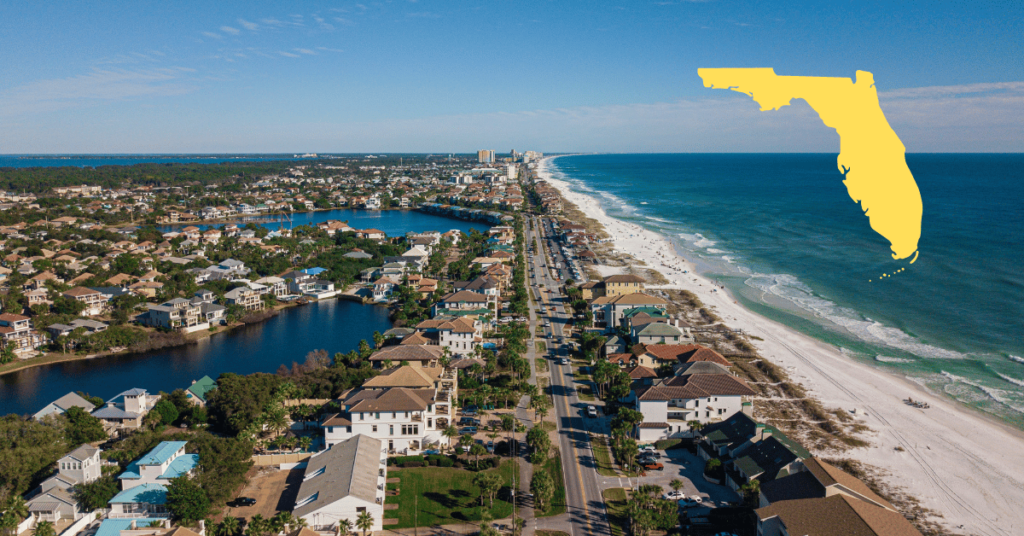North Carolina is becoming an increasingly popular state for retirees, thanks to its diverse landscapes, relatively affordable cost of living, and moderate tax environment. Whether you’re looking for a mountain retreat, a coastal escape, or a vibrant city lifestyle, North Carolina offers various living options for retirees.
This article explores key tax strategies and living choices for those considering retirement in the state.
Tax Strategies for Retirees in North Carolina

State Income Tax
North Carolina has a flat income tax rate of 4.75% as of 2024. While this rate applies to all taxable income, retirees benefit from certain exclusions and deductions, making it tax-friendly for those with various income sources.
- Social Security Benefits: North Carolina does not tax Social Security income, which is a significant advantage for retirees relying on this as a primary income source.
- Retirement Plan Distributions: Pension and IRA withdrawals are subject to the state’s flat income tax, but proper planning can help minimize the tax burden.
- Standard Deduction: Retirees can take advantage of the state’s generous standard deduction, which can further reduce taxable income.
Tax on Property
North Carolina’s property taxes are generally lower than the national average, making it a great option for retirees looking to purchase a home.
- Property Tax Rates: The average effective property tax rate in North Carolina is 0.77%, which is significantly lower than in many other states.
- Homestead Exemption: Seniors aged 65 and older may qualify for a homestead exemption, which can reduce the taxable value of their home by up to $25,000. This exemption applies to homeowners who meet income and residency requirements.
Sales Tax
North Carolina has a base state sales tax rate of 4.75%, with local counties adding up to 2.75%, resulting in a total rate ranging from 6.75% to 7.5% depending on the location. However, many essential items like groceries are taxed at a reduced rate, making daily living costs more manageable for retirees.
Estate and Inheritance Taxes
North Carolina does not have an estate or inheritance tax, which can be a significant benefit for retirees planning their estate.
Living Options in North Carolina

North Carolina offers a variety of living options, from bustling urban environments to peaceful rural areas, allowing retirees to choose the lifestyle that best suits their needs.
Mountain Living: Asheville and Surrounding Areas
For retirees who love the outdoors and mild seasons, the mountain regions of North Carolina, especially around Asheville, are a top choice.
- Asheville: Known for its artsy vibe and stunning views of the Blue Ridge Mountains, Asheville is a hub for retirees who enjoy hiking, mountain biking, and scenic drives. The town also offers a lively arts scene and excellent healthcare facilities.
- Hendersonville: A smaller town near Asheville, Hendersonville is perfect for those who want a slower pace of life but still want access to the great outdoors. The cost of living here is lower compared to Asheville, making it a great option for budget-conscious retirees.
Coastal Living: Wilmington and the Outer Banks
For retirees who prefer beach life, the coastal areas of North Carolina offer sunny skies, warm waters, and a relaxed atmosphere.
- Wilmington: With its charming historic district and proximity to beaches, Wilmington is a popular retirement destination. The town offers plenty of recreational activities, including boating, fishing, and golfing, making it an ideal location for outdoor enthusiasts.
- Outer Banks: For a more secluded coastal experience, the Outer Banks offers long stretches of beach, quiet communities, and a laid-back lifestyle. However, the cost of living can be higher due to its popularity as a tourist destination.
Urban Living: Charlotte and Raleigh
For retirees who prefer urban living with access to cultural amenities, North Carolina’s cities offer vibrant communities with plenty to do.
- Charlotte: As the state’s largest city, Charlotte offers a mix of urban excitement and Southern charm. It’s ideal for retirees who want access to healthcare, entertainment, and dining while still being a short drive from the mountains or the coast.
- Raleigh: Known as a hub for education and technology, Raleigh also offers a robust healthcare system and a lower cost of living than other major cities. Its many parks, greenways, and cultural activities make it a great place for active retirees.
Rural Living: Small Towns and Countryside
If you’re looking for peace and quiet, North Carolina’s small towns and rural areas provide affordable living with access to nature.
- Blowing Rock: A charming small town nestled in the mountains, Blowing Rock offers retirees a scenic and serene environment. It’s perfect for those who prefer a slower pace of life and enjoy outdoor activities like hiking and fishing.
- New Bern: A historic town near the coast, New Bern offers a quaint lifestyle with easy access to rivers and the ocean. It’s also affordable, with lower housing costs compared to the more popular coastal areas.
Cost of Living in North Carolina

The cost of living in North Carolina varies depending on the region, but overall, it is lower than the national average, making it an attractive option for retirees.
- Housing Costs: Home prices in North Carolina are lower than the national average, especially in rural areas. In cities like Raleigh and Charlotte, housing may be more expensive, but it is still affordable compared to other urban areas in the U.S.
- Healthcare: North Carolina offers excellent healthcare facilities, especially in cities like Raleigh, Durham, and Asheville. However, healthcare costs can be higher in rural areas due to limited access.
Conclusion
North Carolina is a great option for non-traditional retirees, offering a balanced combination of affordable living, diverse landscapes, and favorable tax conditions. Whether you’re drawn to the mountains, coast, or cities, the state offers living options to suit every retirement lifestyle. With smart tax planning and an understanding of your living needs, North Carolina can provide a fulfilling and enjoyable retirement.
If you have any further questions feel free to comment down below or contact retiresmart for any help!
FAQs
Is North Carolina tax-friendly for retirees?
Yes, North Carolina does not tax Social Security benefits and offers a flat income tax rate, along with property tax exemptions for qualifying seniors.
What are the best areas for affordable retirement living in North Carolina?
Cities like Hendersonville, Wilmington, and New Bern offer affordable living with access to beautiful natural landscapes. The cost of living tends to be lower in rural areas as well.
Does North Carolina tax 401(k) and pension income?
Yes, withdrawals from 401(k)s and pensions are subject to North Carolina’s flat income tax rate, but smart tax planning can minimize this burden.
What’s the healthcare situation like in North Carolina for retirees?
The state has excellent healthcare, particularly in urban areas like Raleigh, Durham, and Asheville. Retirees in rural areas may face higher healthcare costs due to fewer medical facilities.
What is the climate like in North Carolina for retirees seeking outdoor activities?
North Carolina offers a mild climate with warm summers and mild winters, making it perfect for retirees who enjoy outdoor activities year-round.




